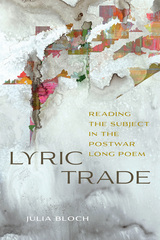456 start with S start with S

A modern translation of verses by Bullhe Shah, the iconic eighteenth-century Sufi poet, treasured by readers worldwide to this day.
The poetry of Bullhe Shah (d. 1758) is considered one of the glories of premodern Panjabi literature. Born in Uch, Panjab, in present-day Pakistan, Bullhe Shah drew profoundly upon Sufi mysticism in his writings. His lyrics, famous for their vivid style and outspoken denunciation of artificial religious divisions, have long been held in affection by Hindus, Muslims, and Sikhs, and they continue to win audiences today across national boundaries and in the global Panjabi diaspora. Indeed, many young people in South Asia are already acquainted—albeit unknowingly at times—with the iconic eighteenth-century Panjabi poet’s words through popular musical genres of the twenty-first century.
The striking new translation in English is presented alongside the Panjabi text, in the Gurmukhi script, re-edited on the basis of the best modern Pakistani and Indian editions. Bullhe Shah’s Sufi Lyrics thus offers at once the most complete and most approachable version of this great poet’s works yet available.
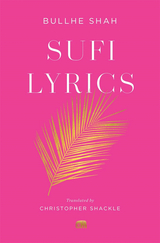
A modern translation of verses by Bullhe Shah, the iconic eighteenth-century Sufi poet, treasured by readers worldwide to this day.
Bullhe Shah’s work is among the glories of Panjabi literature, and the iconic eighteenth-century poet is widely regarded as a master of mystical Sufi poetry. His verses, famous for their vivid style and outspoken denunciation of artificial religious divisions, have long been beloved and continue to win audiences around the world. This striking new translation is the most authoritative and engaging introduction to an enduring South Asian classic.
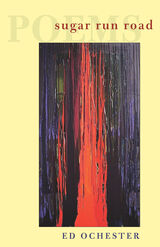

This poem belongs of the little-known Newari (Nepal Bhasha) language and literature, specifically to its even less known Buddhist version. It is one of the very rare cases that works in Newari language appear outside Nepal.
In nineteen long cantos, the Sugata Saurabha tells of the life of the Buddha, following the traditional accounts, but situates it in the strongly local context of Newar and Nepali Buddhism. It emulates the classical (Kavya) style of the long-standing Indian tradition, and has been inspired by the 2,000-year-old Sanskrit poem, the Buddhacarita. Consequently, the poet inserts stanzas composed in traditional classical Sanskrit meter, though written in polished Newari.
The poem was composed by the greatest modern writer in Newari language, Chittadhar Hrdaya (1906– 1982), while he was imprisoned by the autocratic strongly pro-Hindu Rana regime that governed Nepal from the mid-nineteenth to the mid-twentieth century.
The poem is the best-known work of the flowering of modern Newari literature that emerged after the restrictions of the Rana regime were lifted in 1950.
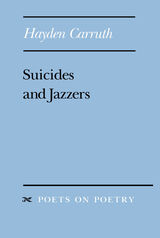
In Suicides and Jazzers, Hayden Carruth reveals as never before the hard experiences that have shaped his life and art. In the lead essay, entitled "Suicide," he speaks of the psychiatric illness he has lived with for most of his life and his attempted suicide in 1988. In "Fragments of Autobiography," he shares memories of a Connecticut childhood, early ruminations about death, and his coming-of-age in small-town America.
A major essay on the poetry of Paul Goodman is followed by shorter essays on Wallace Stevens, Emily Dickinson, Donald Hall, and Carolyn Kizer. In sections entitled "Elegies," "Reviews," and "Musical" Carruth celebrates fine writers and musicians who he feels have been intentionally neglected by the establishment, including authors Grace Paley and David Ignatow, tenor saxophonist Ben Webster, and, in "The Spun-Off Independent Dead-End Ten-Star Blast," white jazz musicians.
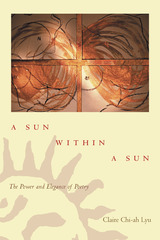
A Sun within a Sun is a sustained poetic reflection on the enterprise of poetry, on what poetry is and might be, not only for poet and theorist but also for reader, critic, teacher, and student. It sees poetry as life at its most genuine.
Using Baudelaire and Mallarmé as principal examples, but drawing on a wide range of poets and thinkers, from Greek mythology to Poe, Rimbaud, Rilke, and Blake; from Nietzsche, Gilles Deleuze, and Italo Calvino to William James and Henry Miller, Claire Chi-ah Lyu challenges contemporary poetic theory, using precise and acute deconstruction of poetic imagery to reconstruct language so that it celebrates both meaning and beauty.
<I>A Sun within a Sun</I> explores the notions of lightness and weight, discipline and indulgence, freedom and loss of will that are inherent in the poetic enterprise. It poses that lightness, discipline, freedom, and risk are essential for an approach to the enigma of beauty through an elegant shaping of form that holds true not only in poetry but also in pure science and even fashion. Poetry is a language within a language, a heightened and intense awareness of what words mean and what they can do, at its best creating an intensity of a sun within a sun. The poet and reader of poetry must take the risk Icarus took of approaching the sun, for without the risk there is no fulfillment.
A Sun within a Sun seeks a shaping of form and content that discovers poetry as power, as a practice of life that honors and makes possible both thought and feeling.

In Sunday Houses the Sunday House, Elizabeth Hughey embraces the possibility that we can learn as much from objects as we can from other people, from the inanimate as much as the animate. Each poem descends upon a place and a time, takes a few notes, and then leaves quietly without slamming any doors. Sunday Houses the Sunday House reveals what the world is like when your attention is focused elsewhere, when your head is turned the other way.
In ineffably beautiful verse, Hughey captures moments in time and place with confidence but without being judgmental. Although it may seem that the scope of these poems is rather small—a good party, a couple of eggs, a housekeeper's daydream—they reveal both a deep intelligence and a spirit of whimsy. Gertrude Stein wrote that she wanted to be "drunk with nouns," and in a sense that is what Hughey has accomplished here.
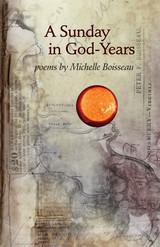
A Sunday in God-Years takes its title from the notion that if we consider ourselves inside the long stretch of geologic time, human history happens in the blink of God’s eye as he rolls over during a Sunday nap. The book is centered around the long poem “A Reckoning” made up of fifteen shorter poems/sections (some sections are documents like wills and runaway slave notices). This long poem tries to reckon and recognize the sticky webs that bind the heirs of those who were slave holders (like the Boisseaus) and of those who were held as slaves.
“A Reckoning” builds the context for the rest of the book which, among other things, looks through the metaphors from geology to confront the historic and personal: Boisseau’s paternal ancestors fled religious persecution in France in 1685 and soon after their arrival in Virginia became entangled in slave ownership. When one looks on human history through the lens of geologic time, when one shifts the scale from the now and near to the distant, and takes a sky-perch, like God, some fascinating things begins to happens. Looking down on us from a satellite, from a conjectural place in deeper spaces from which our cameras have never looked, or from a moment long before humans ventured from trees, human history is thrillingly diminished and immediate human compassion becomes essential as air.
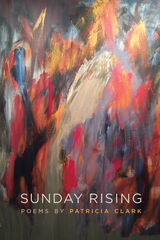


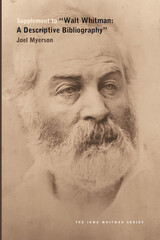

Three plays by ancient Greece’s third great tragedian.
One of antiquity's greatest poets, Euripides has been prized in every age for the pathos, terror, and intellectual probing of his dramatic creations. The new Loeb Classical Library edition of his plays is in six volumes.
Volume III contains three plays. Suppliant Women reflects on the rule of law; Electra gives Euripides' version of the legend of Clytaemestra's murder by her children; Heracles testifies to the fragility of human happiness.
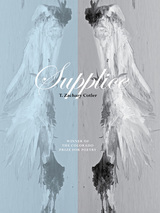
Winner of the 2014 Colorado Prize for Poetry, Supplice is the second installment in T. Zachary Cotler’s sonnet sequence that began with Sonnets to the Humans.These are amatory sonnets, but with love and rhyme tortured into broken and boneset textures. Supplice herself, the dark lady of these poems, is difficult to pin down with an epithet. Is she the angel of reality, banality, popular culture, pornography, uncertainty, or economic and environmental crisis? She has something to do with the history of cruelty and pain, with the devaluation of traditional ideas of beauty, and with the silence and science that have replaced divinity.
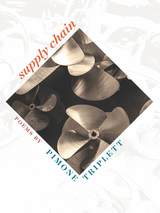
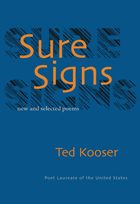
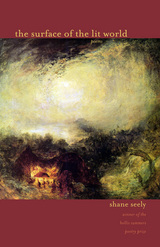
In The Surface of the Lit World, Shane Seely draws on a wide range of sources—from personal memory to biblical narrative—to explore the stories that we tell ourselves about ourselves, the ways in which we make meaning of our lives. Seely delves into the ways in which family and environment shape us. Poems ranging from terse, meditative lyrics to more direct narratives examine the relationship between what lies visible on the lit surface and what lies just beneath.
In addition to first-person autobiographical narratives, there are ekphrastic poems; poems that explore narratives from mythology and religion; and poems based on news reports, radio stories, and audio recordings. Regardless of the approach, the central questions are the same: How do we sense the world we live in? What do the institutions to which we turn for meaning—family, religion, art, literature, science—offer us, and in what ways do they fail us? The answers may depend on where we dare to look.
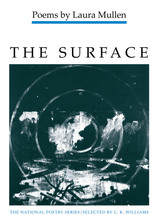
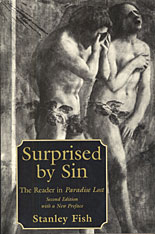
In 1967 the world of Milton studies was divided into two armed camps: one proclaiming (in the tradition of Blake and Shelley) that Milton was of the devil's party with or without knowing it, the other proclaiming (in the tradition of Addison and C. S. Lewis) that the poet's sympathies are obviously with God and the angels loyal to him.
The achievement of Stanley Fish's Surprised by Sin was to reconcile the two camps by subsuming their claims in a single overarching thesis: Paradise Lost is a poem about how its readers came to be the way they are--that is, fallen--and the poem's lesson is proven on a reader's impulse every time he or she finds a devilish action attractive or a godly action dismaying.
Fish's argument reshaped the face of Milton studies; thirty years later the issues raised in Surprised by Sin continue to set the agenda and drive debate.
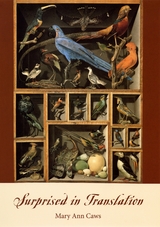
For Mary Ann Caws—noted translator of surrealist poetry—the most appealing translations are also the oddest; the unexpected, unpredictable, and unmimetic turns that translations take are an endless source of fascination and instruction. Surprised in Translation is a celebration of the occasional and fruitful peculiarity that results from some of the most flavorful translations of well-known authors. These translations, Caws avers, can energize and enliven the voice of the original.
In eight elegant chapters Caws reflects on translations that took her by surprise. Caws shows that the elimination of certain passages from the original—in the case of Stéphane Mallarmé translating Tennyson, Ezra Pound interpreting the troubadours, or Virginia Woolf rendered into French by Clara Malraux, Charles Mauron, and Marguerite Yourcenar—often produces a greater and more coherent art. Alternatively, some translations—such as Yves Bonnefoy’s translations of Shakespeare, Keats, and Yeats into French—require more lines in order to fully capture the many facets of the original. On other occasions, Caws argues, a swerve in meaning—as in Beckett translating himself into French or English—can produce a new text, just as true as the original.
Imbued with Caws’s personal observations on the relationship between translators and the authors they translate, Surprised in Translation will interest a wide range of readers, including students of translation, professional literary translators, and scholars of modern and comparative literature.
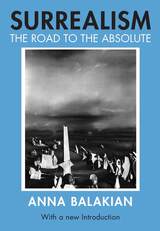
This volume includes photographs of the poets and reproductions of paintings by Ernst, Dali, Tanguy, and others.
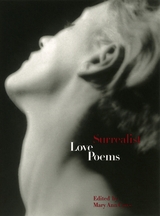
Surrealist Love Poems brings together sixty poems by Surrealists who charged their work with all forms of eroticism. Expertly and energetically edited by Mary Ann Caws, this collection seeks to demonstrate the truth of Breton's words, that "the embrace of poetry like that of bodies / As long as it lasts / Shuts out all the woes of the world."
"Erotic, impassioned and necrophilic, the sixty works gathered in Surrealist Love Poems celebrate the idea of obsessive and transformative love. 'I want to sleep with you side by side. . . . Stretched out on your shadow / Hammered by your tongue / To die in a rabbit's rotting teeth / Happy' writes Joyce Mansour. . . . Caws places poems by major surrealist writers like André Breton and Paul Eluard, along with the poetry of Picasso, Dalí, and Frida Kahlo, side by side with fourteen lushly printed and alluring black-and-white photos by the likes of Man Ray, Lee Miller, and Claude Cahun."—Publishers Weekly
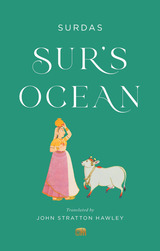
“John Stratton Hawley miraculously manages to braid the charged erotic and divine qualities of Krishna, the many-named god, while introducing us—with subtle occasional rhyme—to a vividly particularized world of prayers and crocodile earrings, spiritual longing and love-struck bees.”
—Forrest Gander, winner of the Pulitzer Prize for Poetry
An award-winning translation of Hindi verses composed by one of India’s treasured poets.
The blind poet Surdas has been regarded as the epitome of artistry in Hindi verse from the end of the sixteenth century, when he lived, to the present day. His fame rests upon his remarkable refashioning of the widely known narrative of the Hindu deity Krishna and his lover Radha into lyrics that are at once elegant and approachable. Surdas’s popularity led to the proliferation, through an energetic oral tradition, of poems ascribed to him, known collectively as the Sūrsāgar.
This award-winning translation reconstructs the early tradition of Surdas’s verse—the poems that were known to the singers of Surdas’s own time as his. Here Surdas stands out with a clarity never before achieved.

Surdas has been regarded as the epitome of artistry in Old Hindi religious poetry from the end of the sixteenth century, when he lived, to the present day. His fame rests upon his remarkable refashioning of the widely known narrative of the cowherd deity Krishna and his lover Radha into lyrics that are at once elegant and approachable. Surdas’s popularity led to the proliferation, through an energetic oral tradition, of poems ascribed to him, known as the Sūrsāgar.
Sur’s Ocean: Poems from the Early Tradition presents a dramatically new edition in Devanagari script and a lyrical English translation. This remarkable volume reconstructs the early tradition of Surdas’s verse—the 433 poems that were known to the singers of Surdas’s own time as his. Here Surdas stands out with a clarity never before achieved.
The Murty Classical Library of India makes available original texts and modern English translations of the masterpieces of literature and thought from across the whole spectrum of Indic languages over the past two millennia in the most authoritative and accessible formats on offer anywhere.
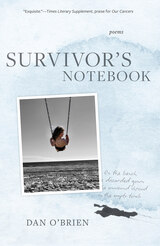
Dan O’Brien’s powerful companion to Our Cancers catalogs the recovery of a cancer survivor, whose wife has recently survived her own cancer, as he returns to his daily life while raising a young daughter. This prose-poem sequence is a true survivor’s notebook, using photos and the tools of memoir to evoke how disaster can constellate our past, present, and future.
In his poems, plays, and nonfiction, Dan O’Brien has explored, as he says in a 2023 interview, “how trauma shatters identity, and in its aftermath we reconfigure and rewrite, as it were, the story of who we were and are and maybe will be.” In highly personal poems reminiscent of dramatic monologues, as well as shorter lyric fragments, the protagonist reconsiders the people and places he knew before his illness, including his estranged family and others with cancer. While looking back he moves forward again, resuming his career as a writer and teacher, revisiting Ireland, and making a kind of pilgrimage to the Holy Land. There is a confiding and at times comical tone in these poems as O’Brien awakens to the delights, absurdities, and wonders of existence, and as he and his wife work through the aftershocks of their trauma toward a deeper love.
With text and image, Survivor’s Notebook shows how we go on, with resilience, gratitude, and joy, when “the emergency’s elsewhere” now.
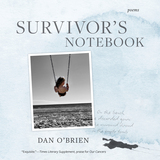
In his poems, plays, and nonfiction, Dan O’Brien has explored, as he says in a 2023 interview, “how trauma shatters identity, and in its aftermath we reconfigure and rewrite, as it were, the story of who we were and are and maybe will be.” In highly personal poems reminiscent of dramatic monologues, as well as shorter lyric fragments, the protagonist reconsiders the people and places he knew before his illness, including his estranged family and others with cancer. While looking back he moves forward again, revisiting Ireland, resuming his career as a writer and teacher, and making a kind of pilgrimage to the Holy Land. There is a confiding and at times comical tone in these poems, as he awakens to the delights, absurdities, and wonders of existence, and as he and his wife work through the aftershocks of their trauma toward a deeper love.
Survivor’s Notebook shows how we go on, with resilience, gratitude, and joy, when “the emergency’s elsewhere” now.

The poet Larry Eigner (1927–1996) was a key figure in New American poetry, which grew out of the Black Mountain School and San Francisco Renaissance, and a major influence on the Language poets. Eigner also had cerebral palsy as the result of an accident at birth. It is fortuitous that the poet lived his life in two locations vibrant in both poetics and disability activism. Except for brief periods attending camp and school, he lived with his parents in Swampscott, Massachusetts, until the age of 51. Later, he moved to Berkeley, California, at the height of the disability rights movement. In the 1950s, Eigner attended Camp Jened, which later became famous in the film Crip Camp.
Bartlett’s biography covers every significant phase of Eigner’s life: his childhood and young adulthood when he began typing poems with one finger on the manual typewriter that was a bar mitzvah gift; his first publications and the maturation of his poetic interests through correspondence with poets of the era; and after his move to Berkeley, the ever-expanding circle of friends, poets, caretakers, and collaborators he established there. The result is a deeply insightful account of an utterly distinctive voice whose influence widens and deepens with each new generation that encounters him.
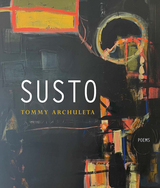
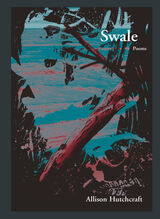
Swale interrogates the violence of colonialism and its reverberations over time, as well as the extinction and the rapid decline of animal species. By turns tidal and cloistered, Swale speaks of science, reliquaries, and lapis lazuli, traversing forests, seascapes, and meadows. Here, the ocean becomes a field, a medieval tapestry transforms into a space that can be entered, and the body is fleshless, struck through with light. The speaker of these poems is ultimately unfixed—and with that comes both imaginative possibility and a personal unmooring. In poems that cast and recast the interior self in different guises—from the perpetually off-kilter Alice to the divergent voices of the shorn lamb and predatory foxhound—an unsettling anxiety grows starker, along with the wish for repair.
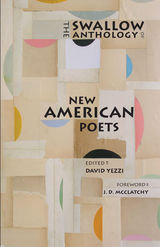
Groundbreaking anthologies of this kind come along once in a generation and, in time, define that generation. The Swallow Anthology of New American Poets identifies a group of poets who have recently begun to make an important mark on contemporary poetry, and their accomplishment and influence will only grow with time. The poets gathered here do not constitute a school or movement; rather they are a group of unique artists working at the top of their craft. As editor David Yezzi writes in his introduction, “Here is a group of writers who have, perhaps for the first time since the modernist revolution of the early twentieth century, returned to a happy détente between warring camps. This, I think, is a new—at least in our age—kind of poet, who, dissatisfied with the climate of extremes, has found a balance between innovation and received form, perceiving the terror beneath the classical and the unities girding romanticism. This new unified sensibility is no watered-down admixture, no pragmatic compromise worked out in departments of creative writing, but, rather, the vital spirit behind some of the most accomplished poetry being written by America’s new poets.”
Poets include: Craig Arnold, David Barber, Rick Barot, Priscilla Becker, Geoffrey Brock, Daniel Brown, Peter Campion, Bill Coyle, Morri Creech, Erica Dawson, Ben Downing, Andrew Feld, John Foy, Jason Gray, George Green, Joseph Harrison, Ernest Hilbert, Adam Kirsch, Joanie Mackowski, Eric McHenry, Molly McQuade, Joshua Mehigan, Wilmer Mills, Joe Osterhaus, J. Allyn Rosser, A. E. Stallings, Pimone Triplett, Catherine Tufariello, Deborah Warren, Rachel Wetzsteon, Greg Williamson, Christian Wiman, Mark Wunderlich, David Yezzi, and C. Dale Young.


In his convincing and highly accomplished fifth book, Ralph Burns draws on his deep practice and experience. His tones, forms, and subjects are various and striking, and the work of a poet mature and courageous enough to range through the full spectrum of his emotions.
Sometimes Burns is haunted by the strength and fallibility of the Christian tradition, and in many of his poems he explores the conflicts between individuals and the larger world—the mystery and responsibility of choice, consequence and inconsequence, “the terror of being taken.”
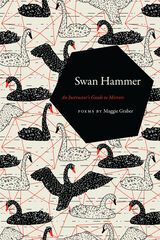



Laura Redden Searing (1839-1923) defied critics of the time by establishing herself as a successful poet, a poet who was deaf. She began writing verse at the Missouri School for the Deaf in 1858, and, under the pseudonym Howard Glyndon, soon found herself catapulted into national prominence by her patriotic Civil War poems. Abraham Lincoln himself bought her books, the most critically acclaimed being Idylls of Battle and Poems of the Rebellion, published in 1864. Her poem “Belle Missouri” became the song of the Missouri Volunteers, and she was sent by the St. Louis Republican newspaper to Washington as a war correspondent.
Despite her success, detractors decried her poetry simply because she was deaf, asking how she could know anything of rhyme, rhythm, or musical composition. She quieted them with the simple elegance of her words and the sophistication of her allegorical themes. Readers can enjoy her work again in this volume, which features more than 70 of her finest poems. They also will learn her feelings about the constraints imposed on 19th-century women in her epic narrative of misunderstanding and lost love “Sweet Bells Jangled:”
Out of sight of the heated land
Over the breezy sea;
Into the reach of the solemn mist
Quietly drifted we.
Her restoration will be an event welcomed by poetry aficionados everywhere.
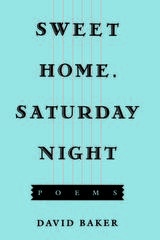
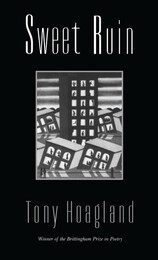
Tony Hoagland captures the recognizably American landscape of a man of his generation: sex, friendship, rock and roll, cars, high optimism, and disillusion. With what Robert Pinsky has called “the saving vulgarity of American poetry,” Hoagland’s small biographies of destruction reveal that defeat is a natural prelude to grace and loss a kind of threshold to freedom.
“A remarkable book. Without any rhetorical straining, with a disarming witty directness, these poems manage to transform every subject they touch, from love to politics, reaching out from the local and the personal to place the largest issues in the context of feeling. It’s hard to think of a recent book that succeeds with equal grace in fusing the truth-telling and the lyric impulse, clarity and song, in a way that produces such consistent pleasure and surprise.”—Carl Dennis
“This is wonderful poetry: exuberant, self-assured, instinct with wisdom and passion.”—Carolyn Kizer
“There is a fine strong sense in these poems of real lives being lived in a real world. This is something I greatly prize. And it is all colored, sometimes brightly, by the poet’s own highly romantic vision of things, so that what we may think we already know ends up seeming rich and strange.”—Donald Justice
“In Sweet Ruin, we’re banging along the Baja of our little American lives, spritzing truth from our lapels, elbowing our compadres, the Seven Deadly Sins. Maybe we’re unhappy in a less than tragic way, but our ruin requires of us a love and understanding and loyalty just as deep and sweet as any tragic hero’s. And it’s all the more poignant in a sad and funny way because the purpose of this forced spiritual march, Hoagland seems to be saying, is to leave ourselves behind. Undoubtedly, you will recognize among the body count many of your selves.”—Jack Myers
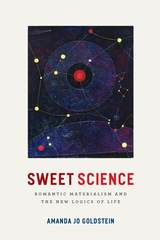
Goldstein puts apparently literary projects, such as William Blake’s poetry of embryogenesis, Goethe’s journals On Morphology, and Percy Shelley’s “poetry of life,” back into conversation with the openly poetic life sciences of Erasmus Darwin, J. G. Herder, Jean-Baptiste Lamarck, and Étienne Geoffroy Saint-Hilaire. Such poetic sciences, Goldstein argues, share in reviving Lucretius’s De rerum natura to advance a view of biological life as neither self-organized nor autonomous, but rather dependent on the collaborative and symbolic processes that give it viable and recognizable form. They summon De rerum natura for a logic of life resistant to the vitalist stress on self-authorizing power and to make a monumental case for poetry’s role in the perception and communication of empirical realities. The first dedicated study of this mortal and materialist dimension of Romantic biopoetics, Sweet Science opens a through-line between Enlightenment materialisms of nature and Marx’s coming historical materialism.
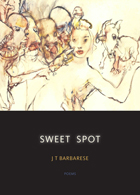
Classical deities and down-and-out junkies, high school sweethearts and the inner life of JFK—these are the coordinates of J.T. Barbarese’s terrain. The poems in Sweet Spot set up shop where average lived experience meets American history. Masterfully evokes both the specific land- and cityscapes of his poems as well the psychological types of the varied characters that populate them, Sweet Spot confirms Barbarese’s preeminence as a chronicler of the heroic everyday, the telling detail, the subtle reminders of the human predicament hidden in habit and memory.
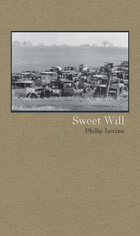
The poems, including the long meditation of more than five hundred lines, “A Poem with No Ending,” are beautiful and essential. Restored to print, they will resonate with readers who love both the earlier and the later work of one of our most important poets.
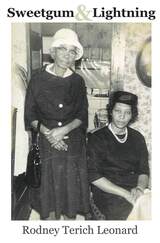
Sweetgum & Lightning lets us into an extraordinary poetic universe, shaped by a vernacular rooted in the language of self, one’s origins, and music. In poems that are deeply sensual in nature, Rodney Terich Leonard considers gender and sexuality, art, poverty, and community. Imagery expands through unexpected lexical associations and rumination on the function of language; words take on new meaning and specificity, and the music of language becomes tantamount to the denotations of words themselves. Through extensive webs of connotation, Leonard’s narratives achieve a sense of accuracy and intimacy. The nuanced lens of these poems is indicative of the honesty of expression at work in the collection—one that affirms the essentiality of perception to living and memory.
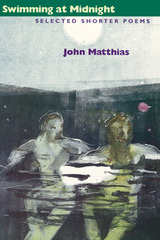
Swimming at Midnight collects the short and middle-length poems from John Matthias’s earlier books together with twenty poems that have previously appeared only in magazines. It is published simultaneously with Beltane at Aphelion, which includes all of Matthias’s longer poems. The two books together represent some thirty years of his work.
The poems in Swimming at Midnight range from early lyrics written in American during the late 1960s to meditative poems dealing with historical, geographical and cultural themes deriving from Matthias’s years in England in the seventies and eighties; they include the epistolary poems from Turns, “Poem for Cynouai” from Crossing, “A Wind in Roussillon” from Northern Summer, and the formal experiments engaging issues of poetics and metaphysics for which Matthias is well known. The book concludes with a section of new poems and translations dealing both with the public world of modern history and the private experience of life in the century’s final decade. The last poem of all connects the work in Swimming at Midnight with the last of the long poems in Beltane at Aphelion.
Critics have been warm in their praise of Matthias’s work. Robert Duncan called his early poetry “the work of a Goliard—one of those wandering souls out of a Dark Age in our own time,” and Guy Davenport has said that his recent work makes him “one of the leading poets in the USA.” D. M. Thomas in the TLS admired the “virtuosity” of Turns and the way “life presses into the poems,” while John Fuller in the same journal found the poems in Crossing “bursting with a masterful intelligence.” In a long essay on Northern Summer, Jeremy Hooker wrote: “In his combination of lyrical and discursive voices, as in subject and concern, Matthias has an exciting range…He writes in some poems from a tension between a scribe’s respect for the integrity of his materials and a magician’s freedom to transform them, and in many poems he brings together the contrasting gifts and is fully present as himself, both scribe and magician.”
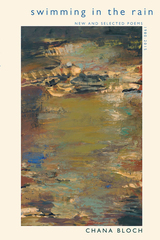

We see the open truck cab, the farm workers on the corner waiting for pick-up; we see the speaker returning west to find the long-abandoned story of the birthfather. There is no stable landscape here except the horizontal action of moving through. Landscape becomes story. In this extended tale of the idea of family, we find stand-ins for the father in the form of a hit man, Jim Morrison, and ultimately the unyielding road takes the place of the body. The Switching/Yard is at once the horizontal world of the birth table where babies are switched, the complex yard of the body where gender routinely shifts and switches, and the actual switching yard of the trains that run the inevitable tracks of this book.
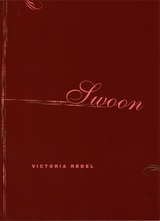
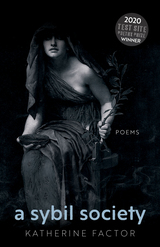
In a time when only a select few are prosperous, A Sybil Society paints a portrait of the present moment and unveils a restless truth. The collection is fearless in the face of convention and gives readers a sense of devastating sorrow in a world gone mad.
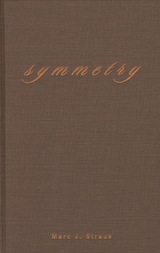
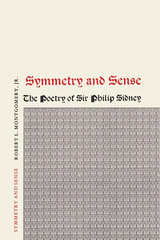
Few Elizabethans left the image of their personalities cut so deeply into the Renaissance imagination as did Sir Philip Sidney. Widely admired in his own time, Sidney must seem to the modern reader almost universally accomplished. His talents as courtier, diplomat, soldier, scholar, novelist, and poet are history.
Almost immediately after Sidney's death in battle against the Spaniards in the Low Countries, the process of legend began, and the legend has survived, sometimes obscuring the facts. The versatile "Renaissance man" has become, in the eyes of some critics, the romantic lover whose frustrations and despair found release in the "confessional" form of the sonnet sequence, Astrophel and Stella, and in other poems. To show these poems to be consciously constructed works of art, not simply passionate outbursts of romantic emotion, is one aim of this study.
The author examines Sidney as poet and critic, concentrating his study on rhetorical technique and poetic rhythm and form. He shows Sidney experimenting with the symmetrical possibilities of rhythm and phrase; practicing the ornateness current and acceptable in his day. He examines Sidney's comment on such a style in The Defense of Poesy and the ways in which the poet's own work agreed with or departed from his expressed opinions. He also balances Sidney's poetry against the powerful tradition of Petrarchan love literature and the equally powerful Renaissance impulse to subject passion to the rule of reason. Finally, in an extended analysis of Astrophel and Stella, he shows Sidney as the master of a plainer, wittier, more subtly fashioned style and a complex, more dramatically immediate form. What emerges from the study is not the personality of the poet, but the principles of his art and the value of his achievement in the mainstream of English Renaissance verse.
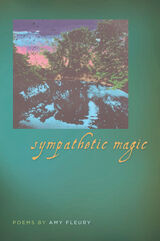
Amy Fleury’s bewitching new collection of poems, Sympathetic Magic, unveils the everyday manifestations of sympathy as well as the connections wrought by “sympathetic magic”—that indelible tether that binds people, places, and objects across time and distance. Fleury’s lyrics journey across the landscapes of childhood and old age, body and spirit, past and future, exploring the boundless permutations of sympathy as it appears in the most surprising locations. Connections reveal themselves in the aggressive silence of the small town or the round penmanship of a loved one, and echo throughout the solitude and regeneration of the forest as well as the antiseptic air of the hospital. At the center of these travels lies the narrator, stretching her limbs from the heart of the heartland, her body a compass summoning us from all directions, emphasizing with tender simplicity that “we all live under the self-same moon, no matter the phase.”
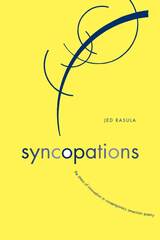
Syncopations is an analysis of the sustaining vitality behind contemporary American poetry from 1975 to the present day by one of the most astute observers and critics in the field. The 12 essays reflect Jed Rasula’s nearly 30 years of advocacy on behalf of “opening the field” of American poetry.
From the Beats and the Black Mountain poets in the 1950s and 1960s to the impact of language poetry, the specter of an avant-garde has haunted the administrative centers of poetic conservatism. But the very concept of avant-garde is misleading, implying organized assault. Incentives for change can be traced to other factors, including the increased participation of women, critical theory’s self-reflection, and a growing interest in the book as a unit of composition. Syncopations addresses these and other issues evident in the work of such poets and critics as Clayton Eshleman, Marjorie Perloff, Ronald Johnson, Clark Coolidge, Nathaniel Mackey, and Robin Blaser. Its chapters range in modes and include close readings, sociological analysis, philosophical-aesthetic meditations, and career appraisals.
By examining both exemplary innovators and the social context in which innovation is either resisted, acclaimed, or taken for granted, Rasula delivers an important conceptual chronicle of the promise of American poetry.
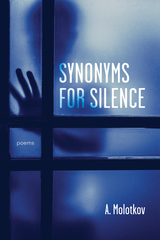
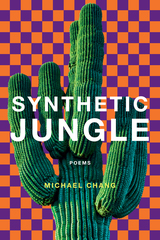
A vital breath of life arrives in American poetry with Synthetic Jungle, the latest collection from acclaimed poet Michael Chang. With poems in a register both hilarious and scathing, Synthetic Jungle effortlessly bashes convention while simultaneously rebuilding the language we use to communicate our fears and joys.
Synthetic Jungle is a collection written by a brilliant jester who winks at you as you catch their every reference before sharing a laugh at your own self-satisfaction. Themes of identity, sexuality, and literacy play out in a dizzying rhythm of microtheaters. Readers will find themselves giggling, snorting, and guffawing their way through this work: whether at a repudiation of the literary landscape or a critique of a failing justice system, to laugh along with Chang is to recognize your mistakes and, ultimately, grow from them.
Fractal and kinetic in the quick-witted spirit of John Ashbery and Emily Dickinson, Chang’s tender poems dance around, between, and through the personal and philosophical. Synthetic Jungle is as sweet as it is grand, and beneath its sarcastic grin reverberates an immense, open heart.
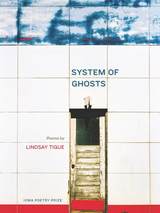
Rooted in the personal, the speaker of this collection moves through society and history, with the aim of firmly placing herself within her own life and loss. Facts become an essential bridge between spatial and historical boundaries. She connects us to the disappearance of species, abandoned structures, and heartbreak—abandoned spaces that tap into the searing grief woven into society’s public places. There is solace in research, one system this collection uses to examine the isolation of contemporary life alongside personal, historical, and ecological loss. While her poems are intimate and personal, Tigue never turns away from the larger contexts within which we all live.
System of Ghosts is, at its core, an act of reaching out—across time, space, history, and across the room.
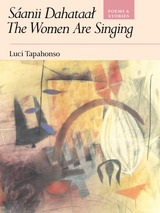
Luci Tapahonso shows how the details of everyday life—whether the tragedy of losing a loved one or the joy of raising children, or simply drinking coffee with her uncle—bear evidence of cultural endurance and continuity. Through her work, readers may come to better appreciate the different perceptions that come from women's lives.

This edition is based on new manuscripts of this important treatise on classical Sanskrit poetics. It was composed by the famous eleventh-century King Bhoja of Malwa (West India), a patron of traditional learning.
The text has never received a complete critical edition. It is important not only because of the theoretical treatment of the erotic sentiment (śṛṅgāra) in classical Sanskrit texts. It is also a mine of quotations from extant and also from lost Sanskrit and Prakrit poetical texts.
READERS
Browse our collection.
PUBLISHERS
See BiblioVault's publisher services.
STUDENT SERVICES
Files for college accessibility offices.
UChicago Accessibility Resources
home | accessibility | search | about | contact us
BiblioVault ® 2001 - 2024
The University of Chicago Press


